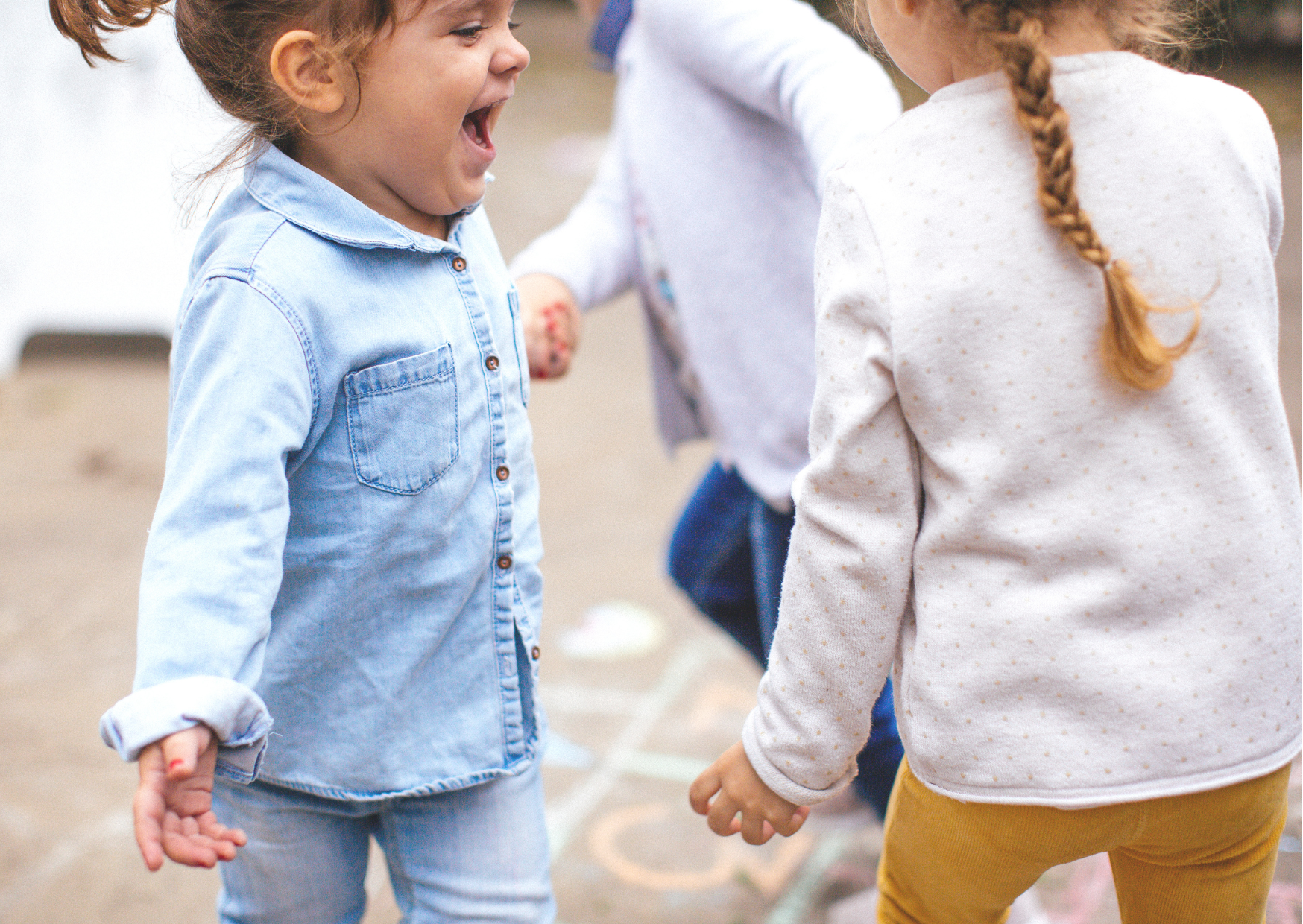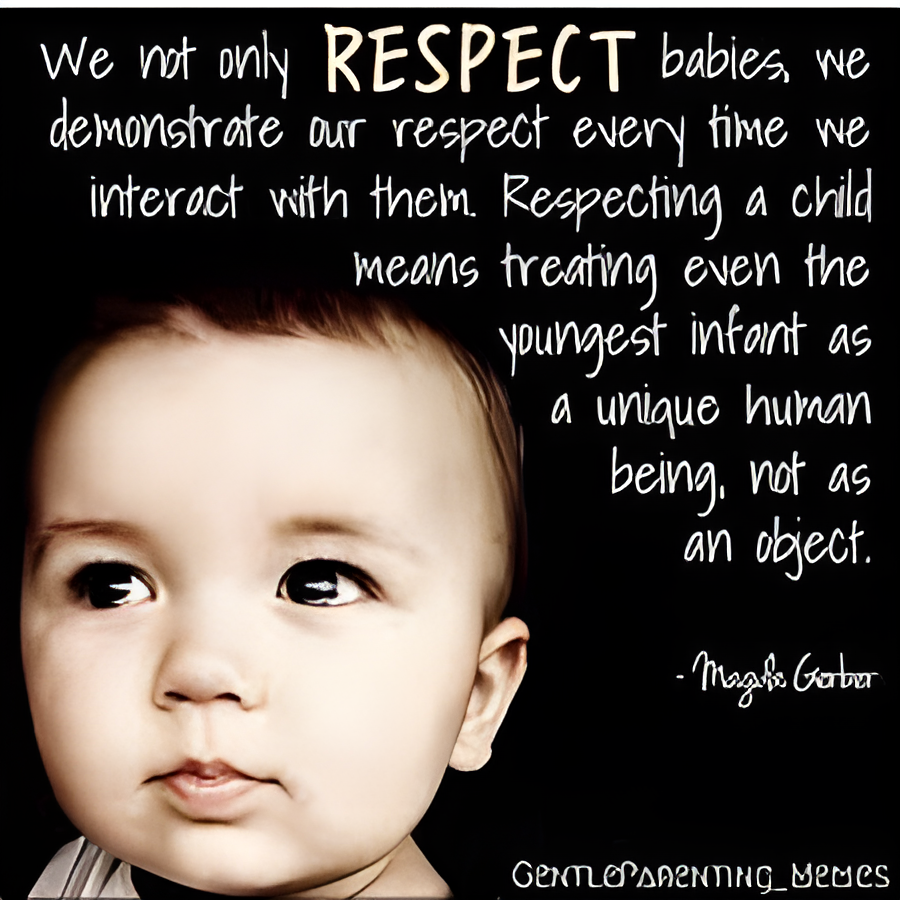After working in a RIE based centre as a mentor for around 7 years, one thing I often find that gets a little lost in translation is the concept of “respectful care.”

These 2 had frequently been reminded, very patiently, not to open bags and go through the belongings. As this infant reached the bags and attempted to pull herself up, these 2 toddlers approached, one had her hand on her hip and the other hand out in front of her saying “NO!” The other covered the bag with both her hands and looked at the infant. Neither touched her or pushed her, they just blocked her access, gave a clear instruction, and waited. The infant did choose to move away and the toddlers moved off, happy that they’d done their part in upholding the law.

It is inevitable in life that you will face disappointment on occasion and better to practice and discover that it is not world ending and sadness is something that we can all recover from. As you build a relationship with a child, your needs have to factor into this relationship as well and it is healthy to be comfortable with saying no if you’re asked to do something you’re not willing to do.
For instance, the child that wants to be carried. What do they learn from this? Other than successful communication of their desire. How can they explore their own capabilities from your hip?
Now I don’t suggest you ignore this child and leave them miserable. Never! But there is an opportunity for a two way conversation here , with your perspective included too... "Ah, I see you want me to pick you up, I won’t pick you up, but I can sit here beside you/walk with you/hold your hand….”
Be honest, acknowledge that you understand, state your perspective and offer a compromise that allows them to extend their capabilities. You’re more likely to develop a connection being present at their level than absently carrying them on your hip anyway.
For the child that doesn’t want to sit. Are they truly hungry?
If you develop a culture where the expectation is that we sit for food and standing communicates that we’re finished, it is mind blowing how quickly infants and toddlers can develop great table manners. Janet Lansbury has some great resources on how to develop this culture, and sometimes it calls for us to follow through with removing food after a fair warning, and that can be disappointing. But the next meal is not all that far away and children actually feel really safe when there is predictability about how daily rituals such as mealtimes, are run.
When these rituals are well established I find that children can easily communicate if they’re tired or out of sorts when they get to a predictable part of the day and all of a sudden can’t perform their usually mastered tasks.

So on a finishing note, be patient, be honest, be kind, and be gentle, but not just with the children. Have an expectation of others to treat you this way as well, and remember that we’re all on different parts of a journey so be patient with those who don't yet have the knowledge that you have. I appreciate the kindness I was afforded when I started my journey of learning about RIE and I hope that I can help to inspire others. My daughter is turning 12 this year and I also have 2 sons and I am so thankful for what I have learned because I really enjoy my witty, cheeky and thoughtful children.


Lee Gumbley
Share your thoughts...






